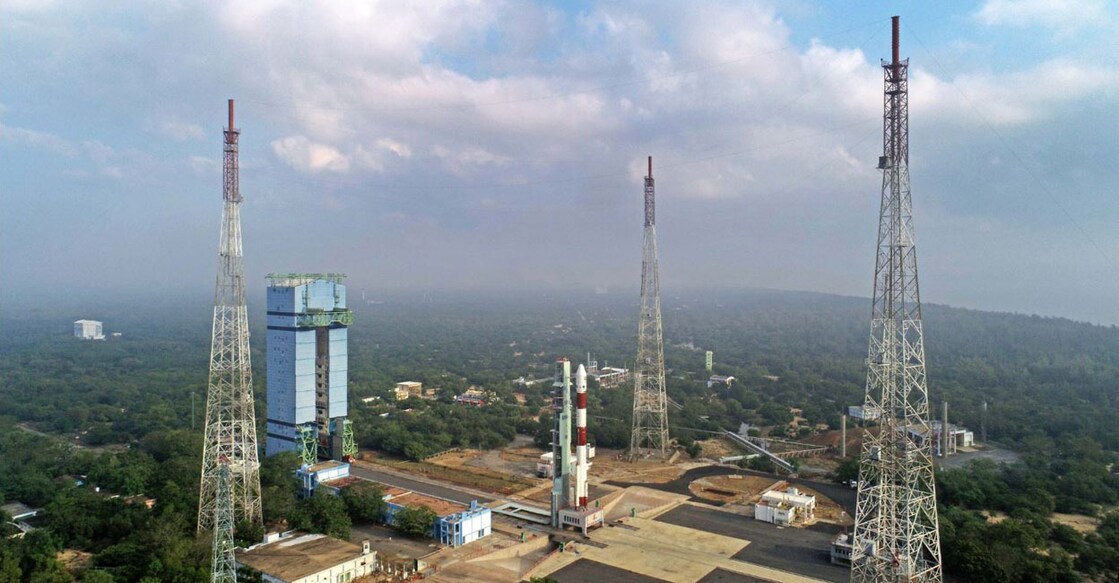ISRO launches X-Ray polarimeter and 10 other satellites in 60th PSLV mission

Mail This Article
Sriharikota (Andhra Pradesh): The Indian space agency launched a PSLV rocket carrying 11 satellites, including ISRO's X-Ray polarimeter satellite, from a spaceport here on Monday at 9.10 am.
ISRO's maiden X-Ray Polarimeter Satellite (XPoSat) would offer insights into celestial objects like black holes. The 25-hour countdown commenced on Sunday at 8.10 am, from the first launch pad at this spaceport, located about 135 km east of Chennai, said ISRO sources.
The PSLV-C58 rocket, in its 60th mission, carried primary payload XPoSat and 10 other satellites to be deployed in low earth orbits. The Mission life is about 5 years.
XPoSat is aimed to investigate the polarisation of intense X-ray sources in space. According to ISRO, it is the first dedicated scientific satellite from ISRO to carry out research in space-based polarisation measurements of X-ray emission from celestial sources.
Besides ISRO, the US-based National Aeronautics Space Agency (NASA) conducted a similar study -- the Imaging X-Ray Polarimetry Explorer mission in December 2021 on the remnants of supernova explosions, the particle streams emitted by black holes and other cosmic events.
While space-based X-ray astronomy has been established in India focusing on imaging, and time domain studies, Monday's mission marks a major value-addition to the scientific fraternity, the space agency said.
The objective of the PSLV-C58 mission includes measuring the polarisation of X-rays in the energy band 8-30 keV emanating from about 50 potential cosmic sources, to carry out long-term spectral and temporal studies of cosmic X-ray sources. The X-ray polarisation serves as a crucial diagnostic tool for examining the radiation mechanism and geometry of celestial sources.
The primary payload of XPoSat is POLIX (Polarimeter Instrument in X-rays) which is designed to measure polarimetry parameters by Raman Research Institute and XSPECT (X-ray Spectroscopy and Timing) built by the U R Rao Satellite Centre, Bengaluru.
The space-based study of X-ray polarisation is gaining utmost importance internationally, and in this context, the XPoSat mission would play a significant role, ISRO added. XPoSat is anticipated to bring substantial benefits to the Astronomy community globally.
Apart from its capability of timing and spectroscopy-based observations, the insights derived from X-ray polarisation measurements on celestial objects like black holes, neutron stars, and active galactic nuclei, hold the potential to significantly improve the understanding of their physics. The mission is poised to play a pivotal role in building expertise in X-ray polarimetry in India, providing a foundation for future advancements and fostering a collaborative network within the astronomy community.
The 44.4-meter-tall PSLV rocket would first deploy the primary satellite into a 650 km Low Earth Orbit around 21 minutes after lift-off and later the scientists would bring the satellite to a lower altitude of about 350 km by restarting the fourth stage of the vehicle, for conducting the PSLV Orbital Experimental Module-3 (POEM-3) experiment. It may be recalled that the space agency conducted a similar scientific experiment using POEM-2 in the PSLV-C55 mission in April 2023.
(With PTI inputs)

